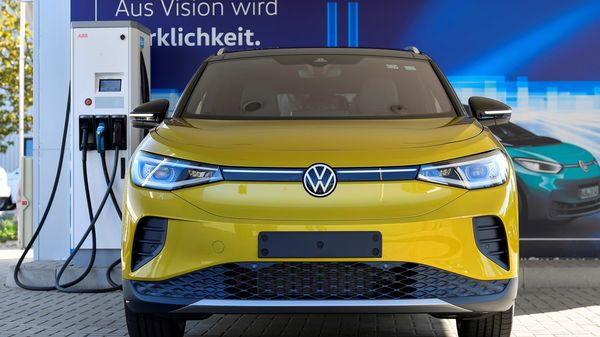In the ever-evolving landscape of autonomous technology, Volkswagen’s software arm, Cariad, and renowned supplier Bosch are making waves with their latest innovation: a system that combines automated parking with electric vehicle (EV) charging. This cutting-edge solution promises to revolutionize the way we think about parking and charging our EVs, providing a glimpse into the future of urban mobility.
The Concept: Seamless Integration of Parking and Charging
While automated parking technology is not a new concept, the integration of EV charging takes it to the next level. Cariad and Bosch envision a system where electric vehicles are guided autonomously to an unoccupied parking space equipped with a charging station. Once the vehicle is parked, a charging robot takes over, recharging the EV automatically. Upon completion, the car moves itself to another available space, allowing the charging robot to service the next vehicle. This seamless process aims to address some of the current challenges faced by EV owners, such as long wait times at charging stations and the inconvenience of handling charging cables.
Real-World Testing
The two companies are currently testing this innovative technology in two parking garages in Germany: Cariad’s staff parking garage in Ingolstadt and Bosch’s development parking garage in Ludwigsburg. These tests will provide valuable data and insights, helping to refine the system for broader deployment.
Bosch has a rich history of working on automated parking solutions. In collaboration with Mercedes-Benz, they have previously developed a fully automated parking garage in Germany. Similarly, Volkswagen has been exploring various robot EV charging concepts since at least 2019. The current project with Cariad marks a significant advancement in their efforts.
Addressing EV Charging Challenges
Automated valet charging can solve several issues that EV owners face today. Long lines at charging spots, fees for leaving the power cable connected too long, and the physical effort required to manage the cable are all problems that this technology aims to alleviate. Bosch highlights the increased convenience for customers, as well as the benefits for automakers, charge spot operators, parking garage operators, and energy suppliers.
Overcoming Technical Hurdles
Despite the promising potential, there are technical challenges to overcome. Establishing a standardized communication protocol between the vehicle and the charging robot is crucial. Additionally, ensuring the reliability and uptime of the robots will be essential for the system’s success.
Conclusion
The collaboration between Cariad and Bosch represents a significant step forward in the development of autonomous parking and EV charging technologies. By addressing existing challenges and providing a convenient, efficient solution, they are paving the way for a future where EV owners can enjoy a hassle-free parking and charging experience. As testing continues in Germany, the insights gained will undoubtedly shape the future of urban mobility, making it smarter, more efficient, and more sustainable.
Source: https://www.theverge.com/2024/1/8/24025164/vw-cariad-bosch-autonomous-parking-robot-ev-charging-ces




